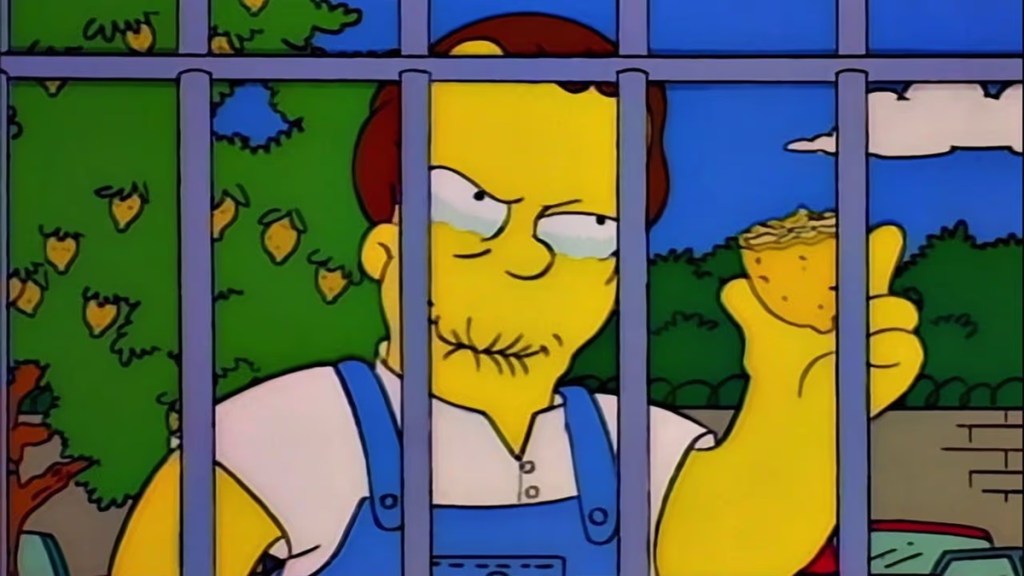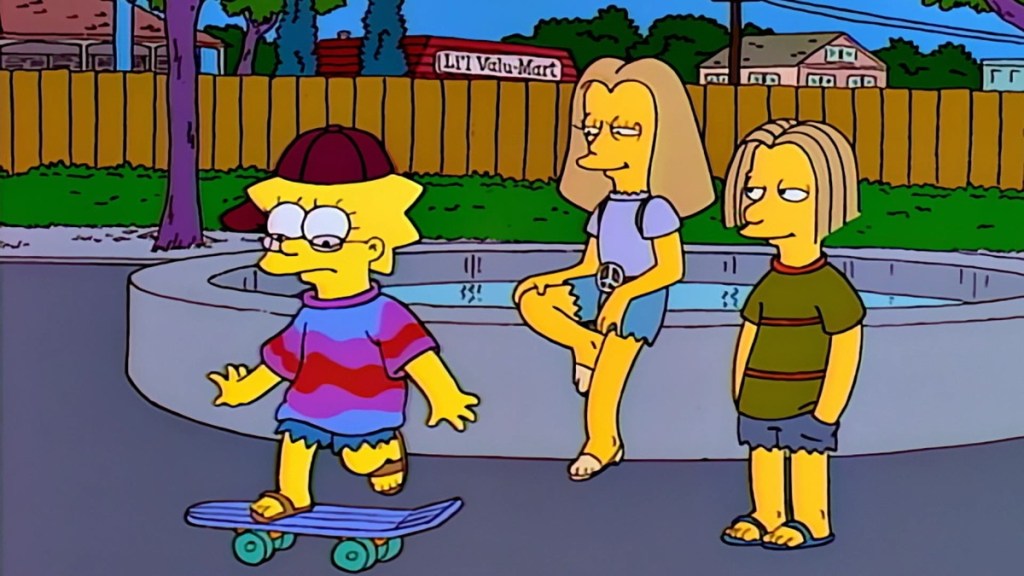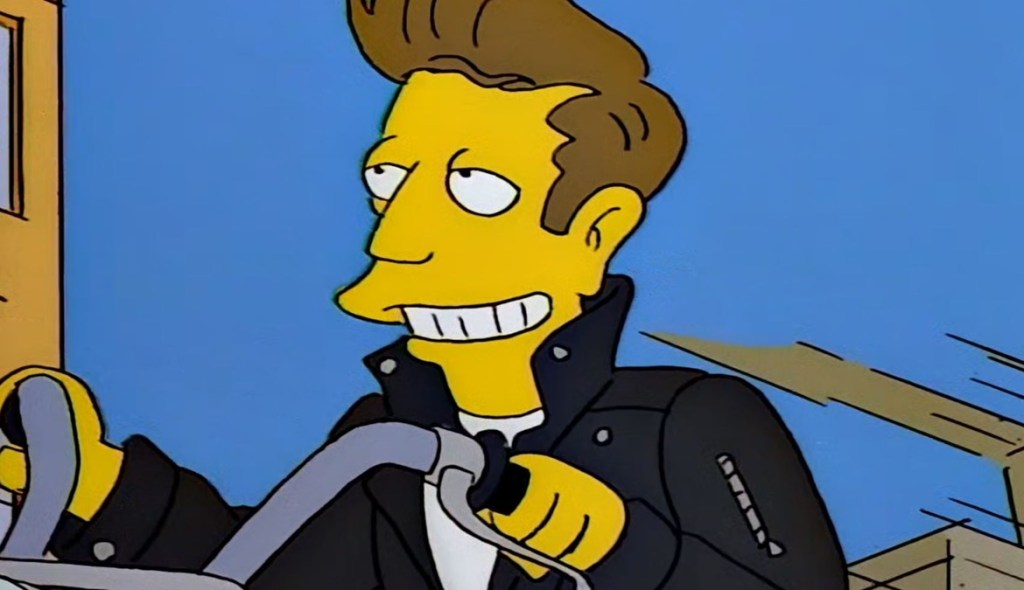5 Underrated Classic Era Simpsons Episodes

While great episodes exist across all eras of The Simpsons (even in especially painful stretches of the show’s history like seasons 18 and 26), this program’s first ten seasons are largely considered the production’s creative peak. The combination of hand-drawn cel animation, various consistently strong writing teams, and a delicate balance of pathos and absurdist gags made this show the greatest to ever air on television. All those qualities were so fervently apparent in those ten initial seasons of The Simpsons.
The reverent way Simpsons fans talk about early masterpiece episodes like “Last Exit to Springfield” or “Cape Feare” makes it clear that this sentiment about those earliest seasons is widespread. However, in these universally beloved seasons, five episodes have slipped through the cracks and haven’t gotten the attention they deserve. Behold, five classic era Simpsons episodes worthy of infinitely more attention and praise.
1) “Lisa the Greek” (season 3, episode 14)

Lisa and Homer Simpson episodes have often brought out some of the most effectively heartfelt Simpsons episodes. That includes “Lisa the Greek,” a season three installment where the two bond over Lisa’s gift for predicting which football teams will win games. Without huge outsized gags or super-famous guest stars, “Lisa the Greek” has somewhat faded from the memory of many Simpsons fans. However, Jay Kogen and Wallace Wolodarsky’s consistently strong writing on the show serves this episode well and keeps things funny and effectively sentimental.
2) “Lemon of Troy” (season 6, episode 24)

Bizarrely, the folks behind the I Can’t Believe It’s a Bigger and Better Updated Unofficial Simpsons Guide text dubbed “Lemon of Troy” “pedestrian”. How on Earth could one come to that verdict over an episode that gave the world such unforgettable lines like “shake harder, boy!” or Milhouse’s “when doves cry” remark? “Lemon of Troy” is full of hysterical jokes juxtaposing familiar child Simpsons characters against those uppity Shelbyville denizens. Plus, the sprawling ensemble cast of this installment gives a wide range of figures, including Martin Prince, Abe Simpson, and Ned Flanders (among others), plenty of time to humorously shine.
3) “Summer of 4 Ft. 2” (season 7, episode 25)

Lisa may usually stick to the books in The Simpsons, but season seven finale “Summer of 4 Ft. 2” gives her a very human dilemma: impressing new kids while on vacation. A very human and grounded episode, Dan Greaney’s writing is very sharp in realizing an adolescent desire for acceptance. It’s also a very funny outing, including Homer Simpson’s reaction to seeing his car trashed at the end of the episode. Other season seven outings like “Bart Sells His Soul” and “Two Bad Neighbors” seem to have overshadowed this outing, but “Summer of 4 Ft. 2” deserves more love.
4) “Lisa the Simpson” (season 9, episode 17)

In this episode, Lisa Simpson begins to worry she’s losing her intelligence and will succumb to a “Simpson Gene” that turns all members of this family into dumb doofuses. Though a low-key outing, director Susie Dietter incorporates some lovely visual touches in here (including a spinning camera chronicling Lisa jotting down thoughts in her diary) that lent vivid life to the proceedings. Not only is Lisa’s struggle to hold onto her personality gripping, but a B-plot about Jasper freezing himself in a Kwik-E-Mart freeze is a riot. If you want to experience the two tonal extremes of The Simpsons in their finest forms, “Lisa the Simpson” is a great pick.
5) “The Principal and the Pauper” (season 9, episode 2)

Few pre-2000 Simpsons episodes are as infamous as “The Principal and the Pauper,” the outing where longtime supporting character Seymour Skinner was revealed to be a fraud. His real name was Armin Tamzarian and he stole that identity from another Vietnam War soldier. For years, “Pauper” has retained a dismal reputation and been held up as an example of the show losing its creative touch.
However, in reality, “The Principal and the Pauper” is a deeply amusing meta-exercise that, above all else, has tons of great Simpsons gags. An extended visual joke revealing just how many people are in Homer’s car, for instance, is sublime. Meanwhile, increasing fan blowback to any changes to their favorite franchises has made the commentary in “The Principal and the Pauper” all the more relevant decades later.
Plus, since “Pauper” aired, truly atrocious Simpsons episodes like “Walking Big & Tall”, “Lisa Goes Gaga,” “The Musk Who Fell to Earth,” and “The Boys of Bummer” have hit the airwaves. These installments make it even easier to appreciate “The Principal and the Pauper’s” virtues, including how it’s realized through cel-animation, its many humorous moments, and the fact that it’s actually trying something bold rather than leaning on a famous guest star playing themselves.
The first 35 seasons of The Simpsons are now streaming on Disney+.




